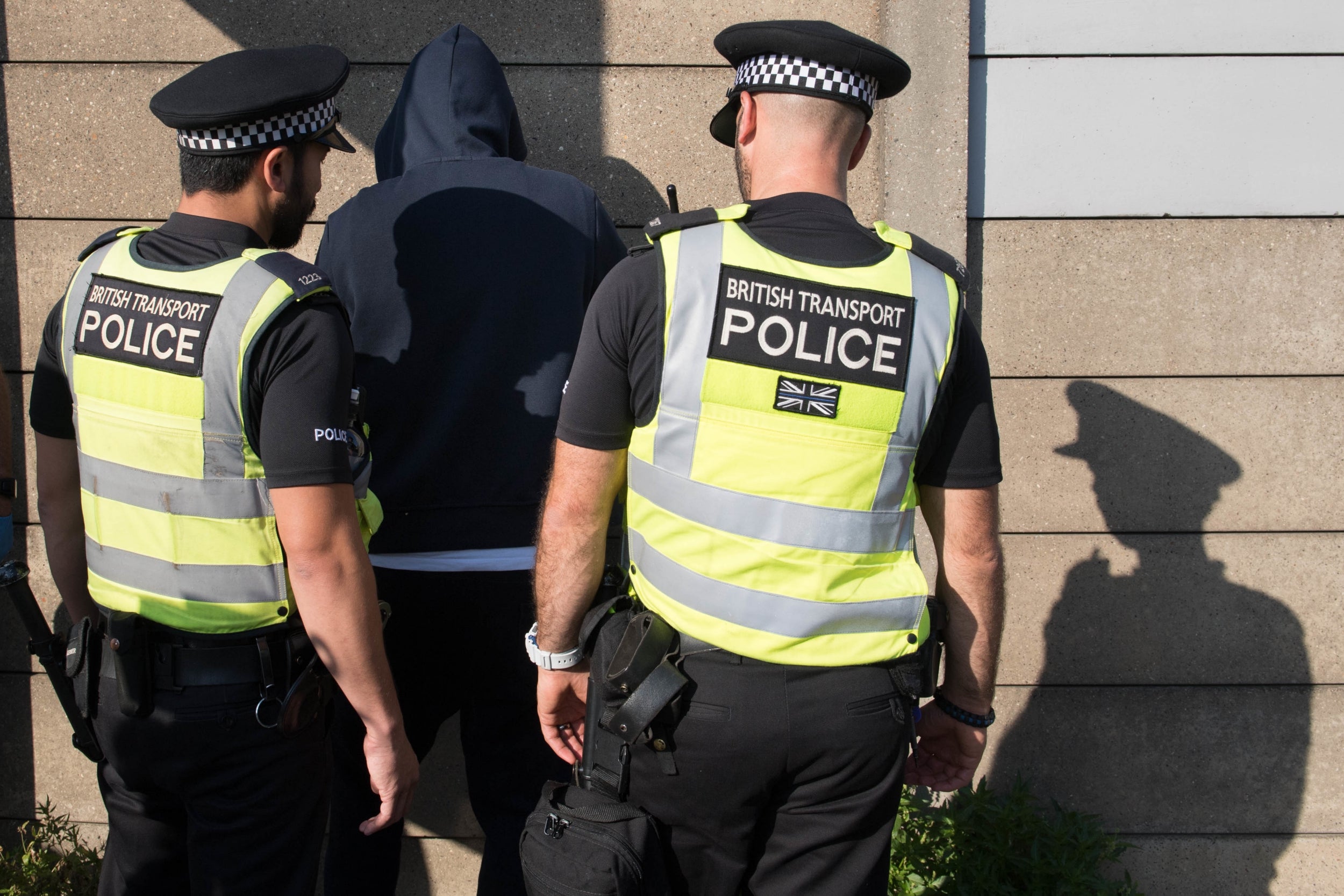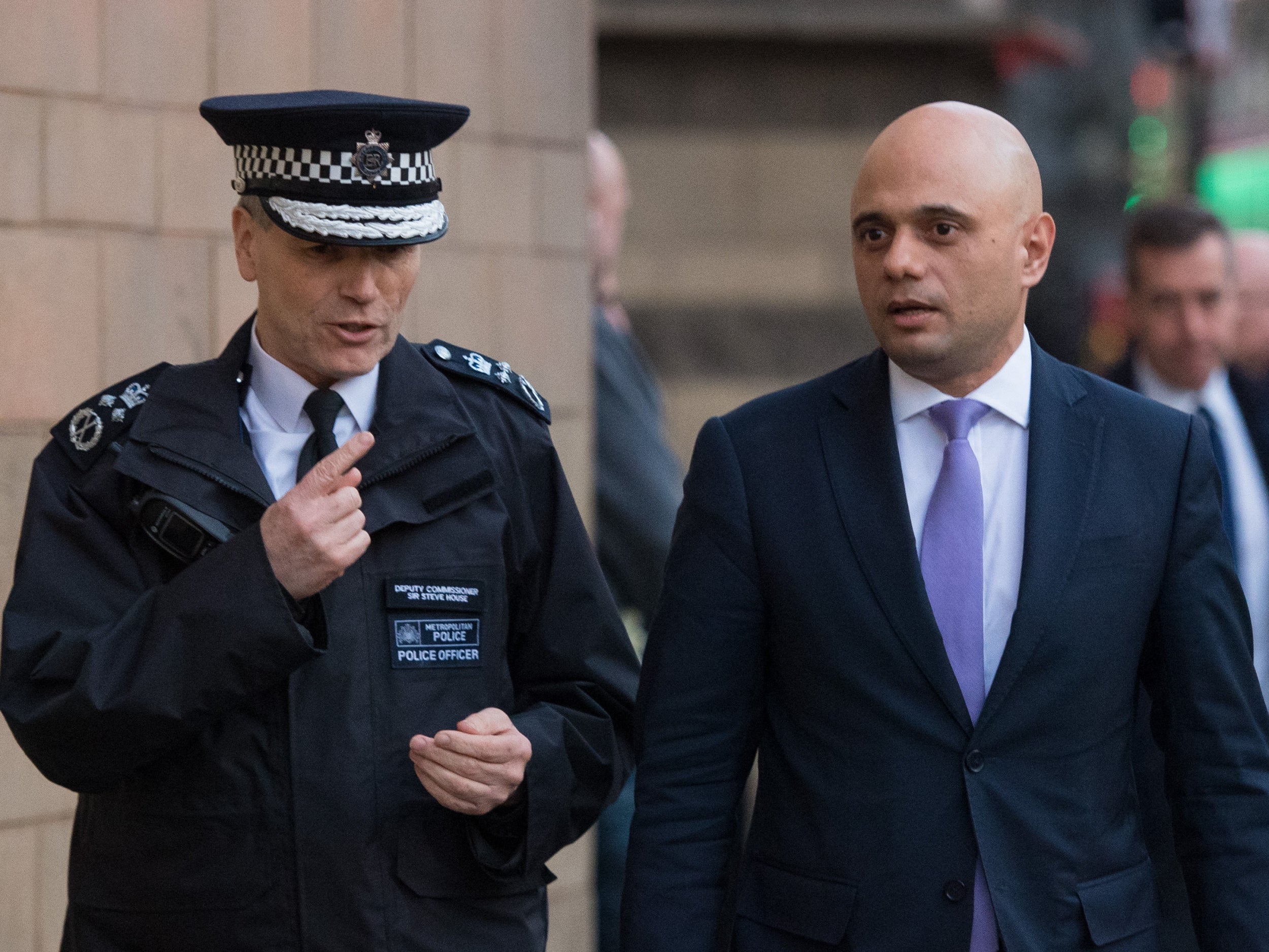Stop and searches without suspicion soar 425% in London police crackdown
'People who aren’t part of any violence are being judged and potentially pulled into the criminal justice system'
The use of controversial police powers to stop and search people without suspicion has rocketed by almost 425 per cent in a year in London.
Critics said measures recently expanded by the government amount to a “fishing expedition” that disproportionately affects black people and those living in deprived areas, but police have credited them with driving down violence.
Scotland Yard figures show Section 60 operations, which can be used to search anyone entering a designated area without reasonable suspicion, jumped from 1,836 in the 2017-18 financial year to 9,599 in 2018-19.
Sir Steve House, deputy commissioner of the Metropolitan Police, said the measures could be used for a limited time “either in anticipation of serious violence or immediately after serious violence”.
“I think we use it far more assertively than before, but I think it is an appropriate use,” he told the London Assembly Police and Crime Committee on Tuesday.
Sir Steve said the number of Section 60 orders authorised rose by 219 per cent in the year and pointed to falling murders and street stabbings during the same period.
He told the committee that homicides have fallen by around 30 per cent year-on-year in London, while knife injuries for under 25-year-olds are down nearly 20 per cent, although knife crime as a whole has remained flat.
Sir Steve said he did not want to appear “complacent” after a 33-year-old man died of his injuries two days after being stabbed in an unprovoked attack.
The Metropolitan Police has also been increasing its use of Section 1 stop-and-search powers, which target individuals where there is reasonable suspicion of them carrying illegal items such as weapons or drugs.
Statistics suggest that blanket searches are more racially disproportionate than those targeting individuals.
In 2018-19, 62 per cent of people stopped under Section 60 were black and 22 per cent were white.
But the rate of positive outcomes, such as drugs, weapons or contraband, being found was higher for white people (13 per cent) than black people (11 per cent).
Individual stop and searches were more successful and more racially proportionate, with an average outcome rate of 28 per cent across all ethnicities, including 29 per cent for white people and 27 per cent for black people.

Almost 160,000 stop and searches using powers other than Section 60 were carried out in London during 2018-19, including 69,300 of black people (43 per cent) and 62,900 of white people (39 per cent).
Last month, Metropolitan Police commissioner Cressida Dick said that Section 60 operations were seeing officers take weapons off the streets while their presence acted as a “deterrent”.
She told journalists: “Having officers in an where there is an outbreak of violence or serious stabbings is a very important tactic, and I believe that has been one thing which has absolutely definitely resulted in a reduction in violence, as has taking weapons off the street and locking up gang members.”
Ms Dick said the Metropolitan Police receives “very few complaints” about stop and search, adding: “The vast majority of people do support us doing that and are asking for more activity, not less … any suggestion that this is sort of random or unmanaged is completely wrong, it is focused and very well led, briefed and organised.”
But campaigners argue that stopping and searching people without reasonable grounds has not been proven to reduce violence, and can be counter-productive by worsening relations between communities and the police.
Katrina Ffrench, the chief executive of StopWatch, said people living in deprived areas that see outbreaks of violence are disproportionately affected by Section 60 operations.
“Police need to show the outcomes before taking credit for falls in serious violence,” she told The Independent.
“People who aren’t part of any violence are being judged and potentially pulled into the criminal justice system … it’s just a fishing expedition.”
Police forces across the country have been increasing their use of stop and search amid a nationwide rise in violence, but research published by The Independent suggested that stop and search did not significantly reduce knife crime.

Gracie Bradley, the policy and campaigns manager at Liberty, said racial discrimination was “worst under suspicionless” Section 60 powers.
"Research shows there is no significant link between ethnicity and knife crime and that prohibited items are found across all ethnicities at similar rates,” she added.
"Stop and search without suspicion is a recipe for state abuse of power and does untold damage to communities’ trust in fair policing.
"It is the antithesis of the targeted, considered and accountable policy interventions that we really need to address complex problems such as youth violence over the long term."
Police leaders have pointed to the fact that the violent crime increase that started in 2014 coincided with reforms by Theresa May that caused the use of stop and search to plummet.
In March, Sajid Javid lowered the bar for Section 60 stop and searches to allow measures to be authorised by thousands more police officers.
Under the changes, which initially apply to seven forces, the rank at which an order can be authorised has been lowered to inspector who only have to believe serious violence “might”, rather than will, occur.
Asked if he thought the current powers are sufficient, Sir Steve said: "I think we are seeing, due to the use of stop and search, a greater awareness amongst people who might be likely to carry knives, that they might be stopped and searched and therefore I do hope they would leave the knife at home and stop carrying knives.
“That's the motive behind stop and search. I believe we have what we need at the moment.”
Additional reporting by PA

